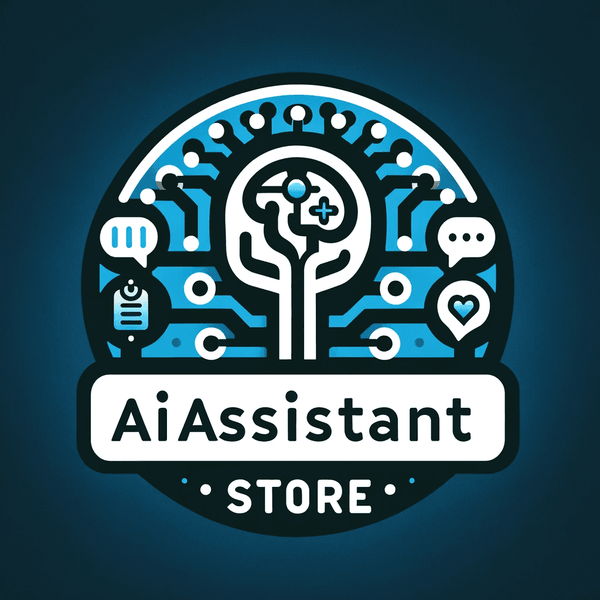So, you're staring at your search bar asking how to become AI engineer - not “AI enthusiast,” not “data dabbling weekend coder,” but full-throttle, system-breaking, jargon-spitting engineer. Okay. You ready for this? Let’s peel this onion, layer by chaotic layer.
Articles you may like to read after this one:
🔗 AI Tools for DevOps – Revolutionizing Automation, Monitoring & Deployment
Explore how AI is reshaping DevOps by streamlining workflows, accelerating deployment, and enhancing reliability.
🔗 Top 10 AI Tools for Developers – Boost Productivity, Code Smarter, Build Faster
A curated list of the best AI-powered tools to level up your software development projects.
🔗 Artificial Intelligence & Software Development – Transforming the Future of Tech
An in-depth look at how AI is revolutionizing everything from code generation to testing and maintenance.
🔗 Python AI Tools – The Ultimate Guide
Master AI development in Python with this comprehensive roundup of essential libraries and tools.
🧠 Step One: Let Obsession Lead (Then Catch Up With Logic)
Nobody decides to be an AI engineer like they pick cereal. It’s weirder than that. Something grabs you - a glitchy chatbot, a half-broken recommendation system, or some ML model that accidentally told your toaster it’s in love. Boom. You’re hooked.
☝️ And that’s good. Because this thing? It requires a long attention span for things that don’t make sense right away.
📚 Step Two: Learn the Language of Machines (And the Logic Behind It)
There’s a sacred trinity in AI engineering - code, math, and organized brain chaos. You don’t master it in a weekend. You inch into it sideways, backwards, overcaffeinated, often frustrated.
| 🔧 Core Skill | 📌 Why It Matters | 📘 Where to Start |
|---|---|---|
| Python 🐍 | Everything’s built in it. Like, everything. | Start with Jupyter, NumPy, Pandas |
| Math 🧮 | You’ll hit dot products & matrix ops by accident. | Focus on linear algebra, stats, calculus |
| Algorithms 🧠 | They’re the invisible scaffolding under AI. | Think trees, graphs, complexity, logic gates |
Don’t try to memorize it all. That’s not how this works. Touch it, tinker with it, screw it up, then fix it once your brain cools off.
🔬 Step Three: Get Your Hands Messy with Frameworks
Theory without tools? That’s just trivia. You want to become an AI engineer? You build. You fail. You debug things that don’t even make sense. (Is it the learning rate? The shape of your tensor? A rogue comma?)
🧪 Try this mix:
-
scikit-learn - for algorithms with less fuss
-
TensorFlow - industrial strength, Google-backed
-
PyTorch - the cooler, readable cousin
If none of your first models break, you’re playing it too safe. Your job is to make beautiful messes until they do something interesting.
🎯 Step Four: Don’t Learn Everything. Just Obsess Over One Thing
Trying to “learn AI” is like trying to memorize the internet. It won’t happen. You’ve gotta niche down.
🔍 Options include:
-
🧬 NLP - Words, text, semantics, attention heads that stare into your soul
-
📸 Vision - Image classification, facial detection, visual weirdness
-
🧠 Reinforcement Learning - Agents that get smarter by doing dumb stuff repeatedly
-
🎨 Generative Models - DALL·E, Stable Diffusion, weird art with deeper math
Honestly, pick what feels magical. Doesn’t matter if it’s mainstream. You’re more likely to become great at what you genuinely like breaking.
🧾 Step Five: Show Your Work. Degree or No Degree.
Look, if you’ve got a CS degree or a master's in machine learning? Awesome. But a GitHub repo with real projects and failed attempts is worth more than another line on your résumé.
📜 Certs that aren’t useless:
-
Deep Learning Specialization (Ng, Coursera)
-
AI for Everyone (lightweight but grounding)
-
Fast.ai (if you like speed + chaos)
Still, projects > paper. Always. Build stuff you actually care about - even if it’s weird. Predict dog moods using LSTMs? Fine. As long as it runs.
📢 Step Six: Become Loud About Your Process (Not Just Results)
Most AI engineers didn’t get hired off one genius model - they got noticed. Talk out loud. Document the mess. Write half-baked blog posts. Show up.
-
Tweet those small wins.
-
Share that “why didn’t this converge” moment.
-
Record five-minute video explainers of your broken experiments.
🎤 Public failure is magnetic. It shows you’re real - and resilient.
🔁 Step Seven: Stay Moving or Get Outpaced
This industry? It mutates. Yesterday’s must-learn is tomorrow’s deprecated import. That’s not bad. That’s the deal.
🧵 Keep sharp by:
-
Skimming arXiv abstracts like they’re puzzle boxes
-
Following open-source orgs like Hugging Face
-
Bookmarking weird subreddits that drop gold in chaotic threads
You’ll never “know it all.” But you can absolutely learn faster than you forget.
🤔How to Become AI Engineer (For Real)
-
Let obsession drag you in first - logic follows
-
Learn Python, math, and the algorithmic flavor of suffering
-
Build broken things until they run
-
Specialize like your brain depends on it
-
Share everything, not just polished bits
-
Stay curious or fall behind
And if you’re still Googling how to become AI engineer, that’s fine. Just remember: half the people already in the field feel like frauds. The secret? They just kept building anyway.

